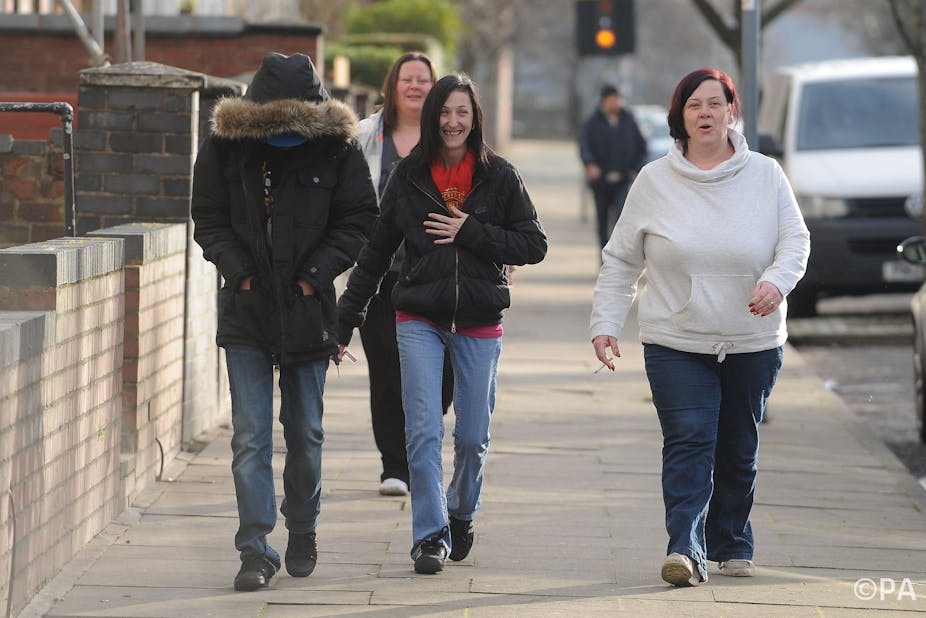George Osborne’s recent announcement that households would receive personalised “annual tax statements” allowing them to track how their taxes are spent has been heavily criticised as manipulative and cynical. Defended by the chancellor as an “unprecedented” move to create a more transparent and accountable government for “hard working” Britons, the Trades Union Congress described the statements as “party propaganda masquerading as neutral information”.
Pitting “hard working tax payers” against “lazy” benefits claimants, Osborne’s latest move is just another manifestation of the concerted cultivation of the “shirker vs striver” rhetoric that has come to define debates about welfare across the political realm.
Such sentiments have particular weight in the context of an unprecedented decimation of the welfare state, where attempts to reduce the deficit have coalesced around reducing social security rather than higher taxation for the (ever-growing) rich, cracking down on tax evasion or tackling low pay and in-work poverty.
‘Poverty porn’ on TV
The demonisation of “welfare scroungers” has perhaps been best illustrated in a new genre of television programming that has emerged over the last two years. TV shows including Channel 4’s Benefits Street, Channel 5’s On Benefits and Proud, and BBC3’s People like Us, have become regular features of prime time viewing schedules. Now Channel 4 is resisting calls to axe its latest contribution to the genre – Immigration Street. The shows generate intense online debate and media coverage, fuelling public anxieties about a supposedly over-generous welfare system.
Despite being defended by TV executives as accurate portrayals of life in communities with high levels of poverty, and cited by leading politicians such as Iain Duncan Smith as evidence of “Broken Britain”, these shows have been subject to much resistance.
Several of these shows have been condemned by people from the communities at their centre, who feel they have been misrepresented and manipulated by TV producers, their lives put on display for entertainment by an industry valuing profit and ratings over honest programme-making. They have also been identified by academics as part of the apparatus that is used to generate consent for welfare reforms.
The struggles taking place over these programmes formed the motivation for a public event that we hosted in Manchester in early November. The event brought together academics, activists, community groups and the public to discuss why these shows have emerged, what significance they have in the context of growing inequality within “austerity Britain”, and how we might challenge them.
Agenda controlled by elites
As sociologist Tracey Jensen has argued, debates around “poverty porn” alert us to a crisis in political and cultural representation. Both of these powerful institutions – mainstream politics and the media industry – are composed of privileged elites, near impossible to access if you lack the resources to work for free, the contacts, and the “right” degree from the “right” university.
What hope is there for democratic, empathetic and critical television if cultural production is dominated by people drawn from a narrow social class who are far removed from the realities of poverty?
Then there is the absence of the wider context of poverty and inequality within these programmes. Focusing on the individual behaviour and “journeys” of participants, the shows neglect and obscure the systemic challenges and compounding disadvantages that people face. Poverty porn television programmes are not observational documentaries that provide analysis, but are supposed to be “factual entertainment”. Is it naïve to expect them be interested in accurate, critical and empathetic representations?
Social and grass-roots media have an important role in providing opportunities for resistant and critical portrays of life in poverty. But these arguably remain small scale, particularly when, as sociologist Imogen Tyler has argued, cultural production is monopolised by a small number of powerful global media corporations with vested interests in these kinds of cheap and highly profitable programmes.
While it is clear that these shows fabricate, manipulate and misrepresent the lives of those they depict, it is important to recognise that there is a certain reality to these programmes. Some might feel that critics gloss over this in the efforts to critique cultural representations of poverty. But we must consider whether academics and other critics are at risk of romanticising communities with high levels of poverty in ways that risk denying the complex challenges that exist within them.
Where next?
The popularity of our public event and the discussions that have continued in its aftermath provide evidence of the appetite for critical conversations about the connections between seemingly trivial TV programmes and the dismantling of the welfare state.
There is no doubt that poverty porn is used to undermine the welfare system. But there are no answers yet to fundamental questions about inequality in society. Stereotypes of people in poverty become the frame through which social security is designed by politicians and civil servants.
As we head towards an election, we must hope that progressive parties challenge both the misrepresentation of people in poverty and deliver policies that can affect the challenging realities that people face. Rejecting the divisive rhetoric of “shirker vs. striver” that has come to saturate the cultural and political register would be a useful starting point.

